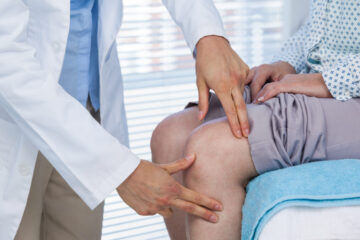Respecting signals given by your body
While taking Medico-yogic consultations at Innersaga, people say that a particular problem happened ‘all of a sudden’ and they didn’t get time to prepare themselves. They say that they have always been healthy and fit then why “this” happened to them?
What defines HEALTH will be discussed as a separate topic! Here we want to highlight that it might not be the whole truth that a physical problem occurred suddenly. Truth is that when you were getting the signals or warnings about an upcoming problem, you might have ignored them or you were lost in your world where things look perfect! But your body is your best friend. It will give you all the possible signals whenever you are going “wrong”. It will never miss ringing an alarm bell.
How your body talks to you?
Some of the common signals given by your body that you often miss or overrule are:
| Signals | Possible interpretation |
| Tiredness | Working more than capacity, either physically or mentally, deficiency of nutrients/minerals/vitamins |
| Acidity or bloating | sign of overeating or eating in wrong combinations or at the wrong time |
| Headache | Sign of lack of sleep, hyperacidity, gastric attack or BP |
| Muscular cramps | Nutrients Deficiency, hormonal issues like Thyroid or muscle stiffness, muscles dryness, atrophy of muscles |
| Irregular periods | hormonal issues & Stress |
| Puffiness on face in the morning | Hormonal issues, gastritis, Liver function issues |
| Swelling in legs | Water Retention, hormonal issues, Liver function imbalance or Kidney function imbalance |
| Back pain after prolonged sitting | Weak core muscles, emotional blockage, desiccated spinal discs |
| Morning stiffness in joints | Lack of lubrication in joints, dietary imbalance, Nutrients deficiency, sign of degeneration |
| Pain in foot or ankle after a long walk | Wrong footwear, overdoing, weak muscles, early degeneration, drop in the foot arch |
| Itchy eyes | Dryness in eyes due to overuse, allergy |
| Neck pain | Overuse of neck, wrong posture, weak muscles, desiccated spinal discs |
| Unusual craving for sweets/spices | Anxiety, restlessness, fear, confusion, or any other emotion that you are not ready to face yet |
| Unexplained sadness/emotionally drained/ Unusual fatigue | Your actions, expectations and feelings might not be in sync, things are not going as you want them to be |
| Insomnia | Stress, anxiety, dissatisfaction & restlessness |
| Shortness of breath | Congestion in the respiratory tract, allergies or emotional blockages, latent anger, unexpressed emotions |
| Increase in weight | Faulty eating habits that could be a result of stress and anxiety, hormonal imbalance, lack of sleep, emotional distress |
The list is not exhaustive as there can be several other signals. So, what’s the use of these warning bells? Well, if these indications are not ignored and paid attention to, then it can save us from a lot of forthcoming trouble.
Any kind of joint pain, be it arthritis of knee, lower back pain, neck pain, frozen shoulder etc can be handled at the initial stage in such a way that you can go on life long without trouble and avoid surgery also.
How Yoga therapy can help?
The study of Yoga therapy involves an in-depth study of Human Anatomy and Physiology. Hence a certified yoga therapist can know about your health condition and suggest you an effective remedial course of action. They will explain to you the problem, its magnitude, the required precautions and shall also teach you the required asanas to help you live a good life. Any advice taken from an experienced Yoga therapist can help you slow down the process of early degeneration, build up muscle strength, avoid atrophy of muscles and even bring an understanding of the part of your lifestyle that is having an adverse impact on you. This shall also include emotional counselling, if required. However, you have to make the first move i.e. to fix an appointment with a therapist!
Example of a precautionary approach, guided by the signals given by your body
If you have a habit of brisk walking, running marathons, weight-lifting, trekking and someday you start feeling tenderness in your knee while climbing upstairs, sitting or getting up from the bed or floor or excessive stiffness in the morning in your knee joints. It indicates that either the knees are being overused or the muscles around the knee are weak or you need to take rest and do a more balanced workout.
If at this stage you get proper guidance from a yoga therapist, instead of waiting for the symptoms to become worse, it can help you stop further deterioration of your knee joint, and provide you with a better understanding of the root cause of the problem. Hence it will enable you to modify your routine and take corrective actions timely.
Being cautious about health doesn’t mean being in a constant start of worry
We do not intend to push you into a state of constant worry and paranoia about your health. Being aware of the signals given by your body and taking precautions does not mean that you should lose your sleep over the slightest pain or discomfort in your body. So how should you deal with it? :
Our body has immense potential to heal itself. Hence many things including small aches and pains, discomfort, cough and cold etc can be taken care of by the body on its own, without you applying your mind.
Step 1a : Whenever you have any physical discomfort/pain, take rest and avoid doing the activity that is giving you these symptoms.
Step 1b: In case of emotional distress/anxiety/insomnia, it is best to observe what is bothering you and which situation or who is giving you most trouble. Try to resort to your friends, talk to them, and speak your heart out. Try to travel to a location of your preference, take a break and distance yourself or the situation/person for some time. If your emotional state does not improve then seek to talk to a therapist.
Step 2: You should consult a therapist if the symptoms :
- Symptoms do not have a reducing trend – for example, you have some non-specific pain in shoulder or stomach or anywhere else. Just observe if it reduces day by day
- Symptoms are aggravating day by day or spreading from one location to another in the body – e.g. leg pain going to the hip and then to the lower back should not be ignored
- Pain does not reduce with rest or after stopping the concerned activity– Knee pain arising because of excessive running should get reduced by taking a break from running
- You have constant fatigue even after taking adequate rest
All we are asking is to be aware, mindful and willing to take action at the right time.
There has been a saying “A stitch in time saves nine”. Time to execute it now!



0 Comments